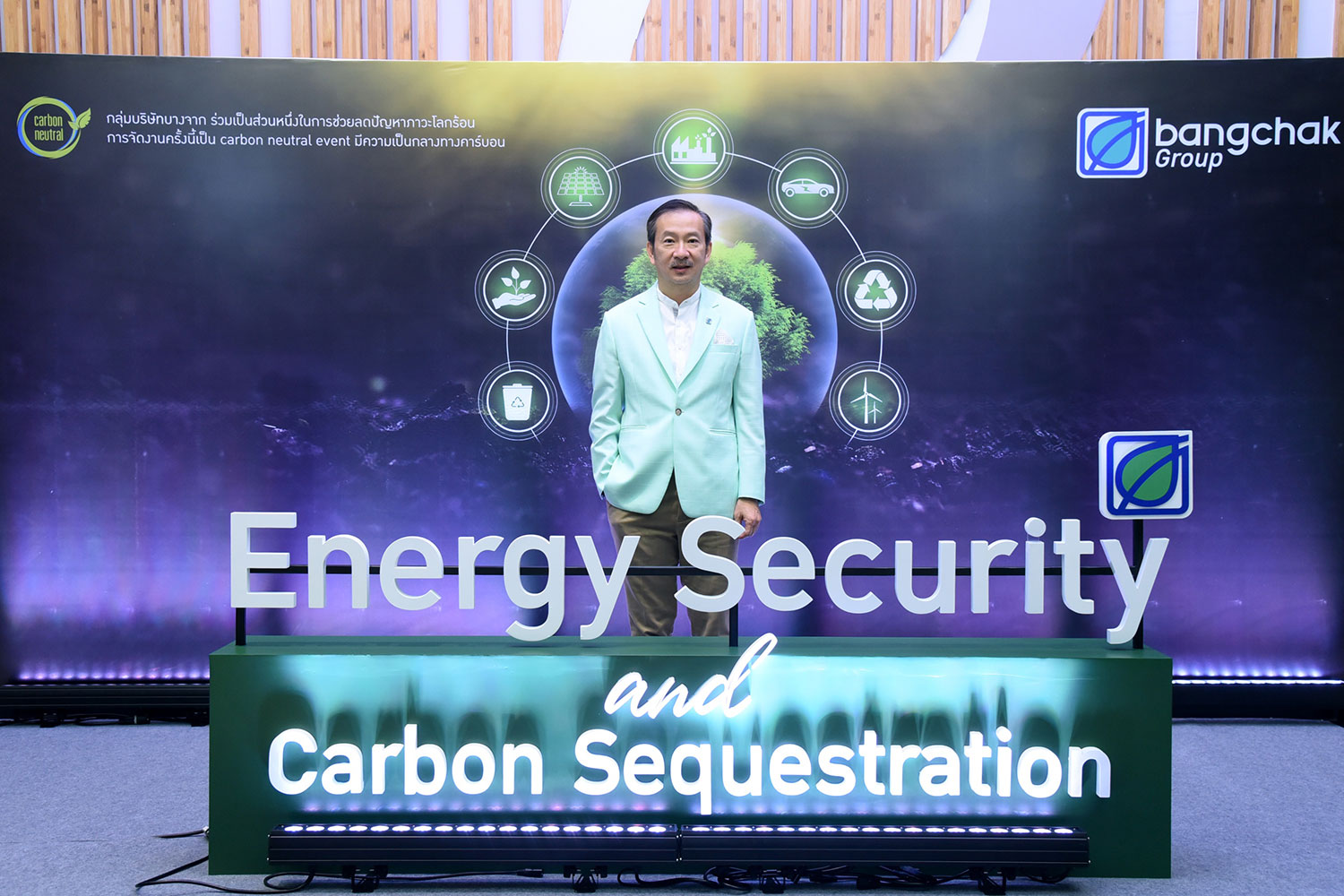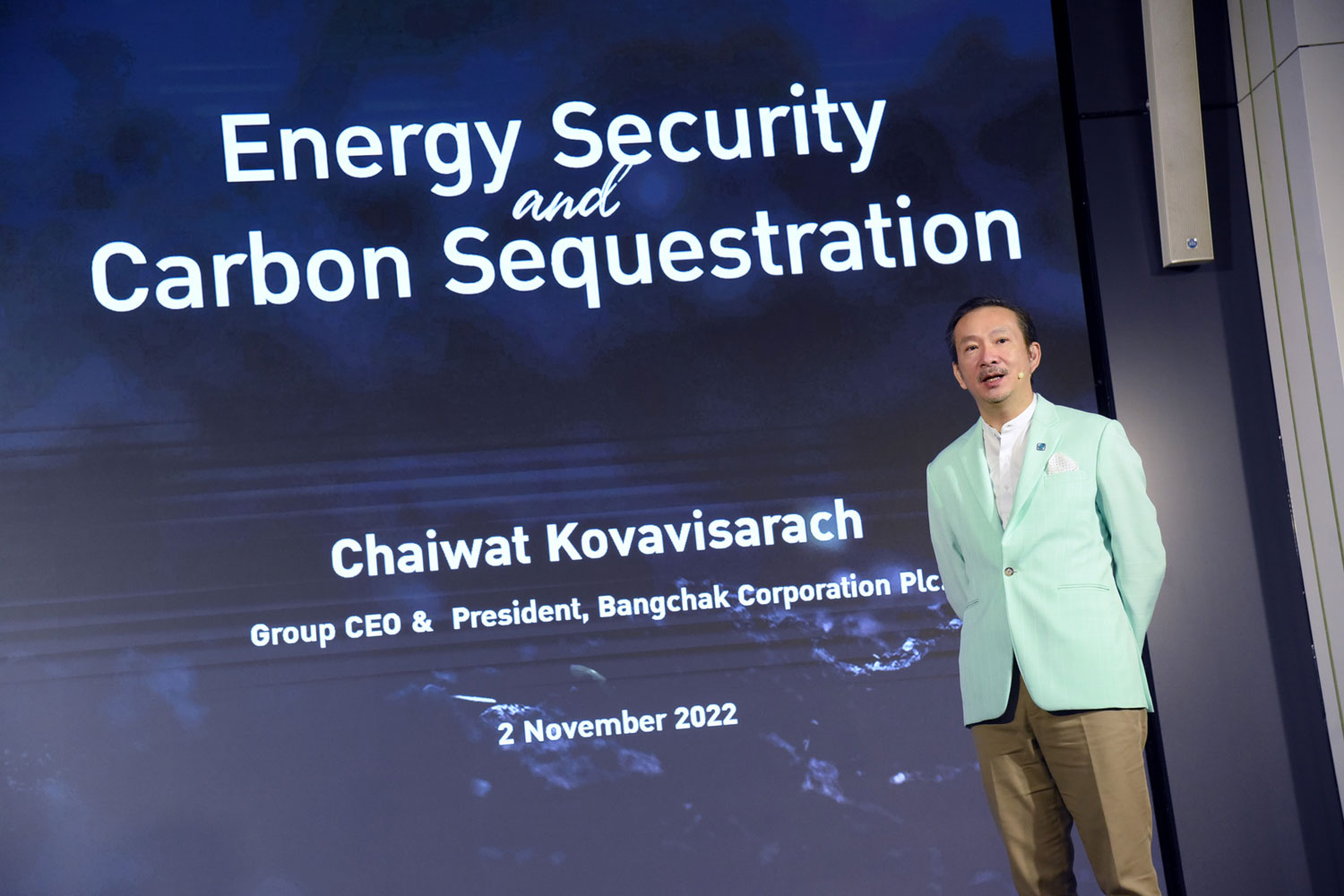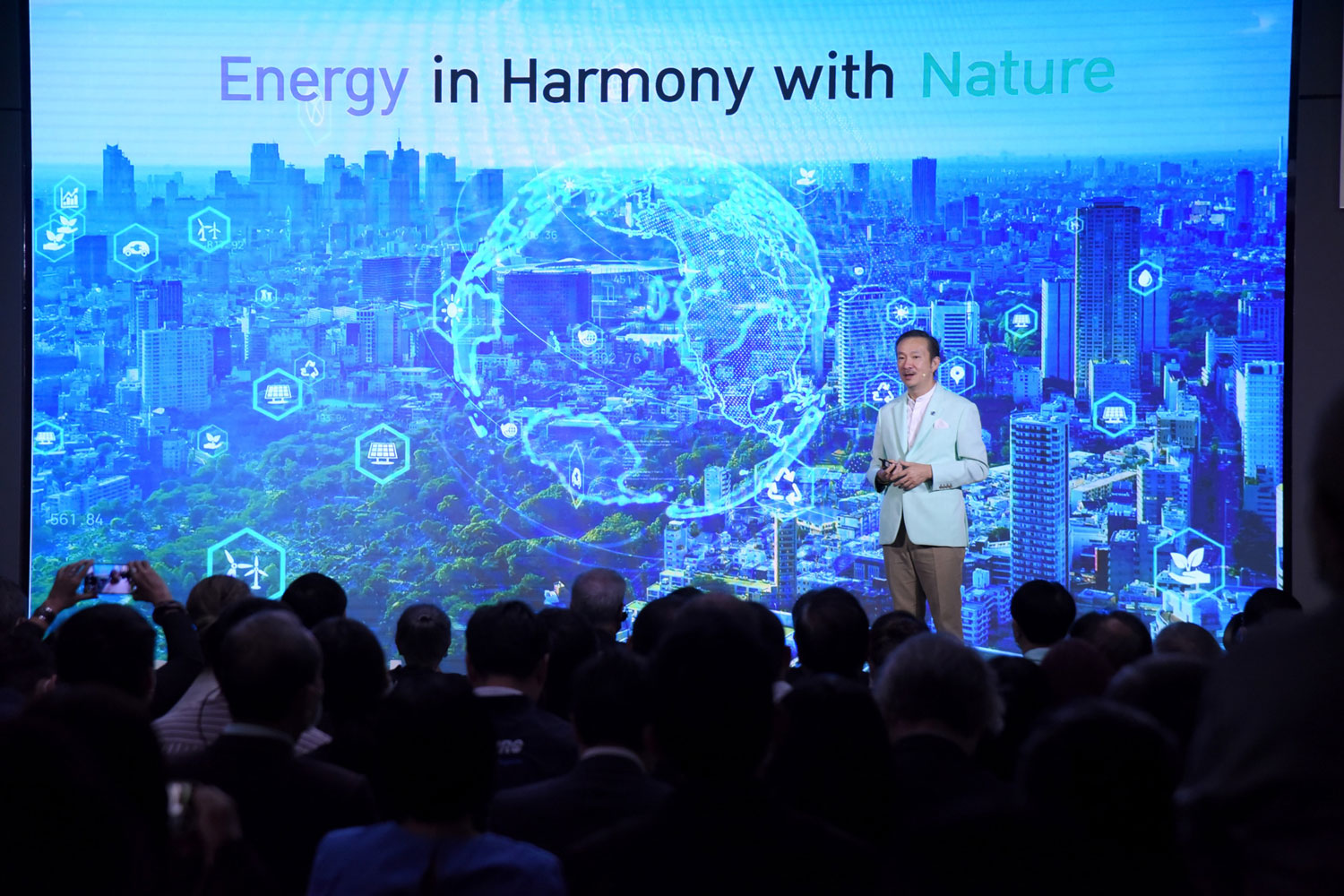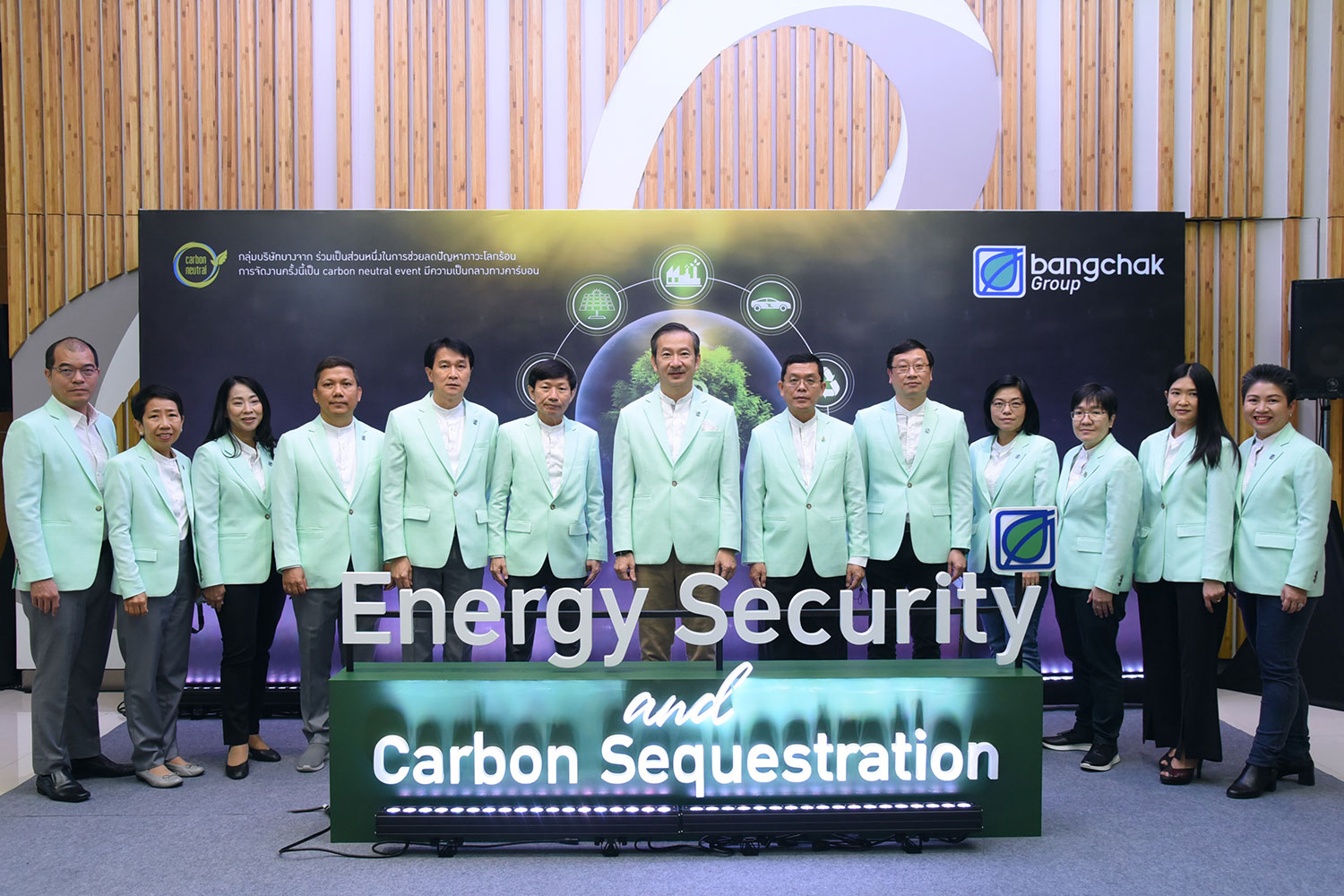
Over a decade ago, the arrival of gasohol, an 80% gasoline and 20% ethanol fuel blend, was resisted by the public for use with internal combustion engines, even though Bangkok and other larger cities in Thailand were ranked as having the world’s worst traffic with cars taking up much space on the road.
Around the world, traffic congestion accounts for a quarter of CO2 emissions contributed from fossil fuels. However, it is impossible to reduce carbon footprints while maintaining economic growth going forward. In fact, economic growth and CO2 emissions rise in tandem with each other.
World Primary energy consumption averages 1.7 EJ per day, equivalent to the energy consumption of a Boeing 747 airplane flying 100,000 rounds around the world. Under normal circumstances, 10 billion people consume 740 EJ of energy per year, whereas to achieve Net Zero by 2050, annual energy consumption must be reduced to 572 EJ.


“Reduction of fossil fuel consumption due to depletion of reserves is forecast by 2052. As such, human dependency on fossil fuels will remain for the next 30 years. This makes energy efficiency the key role to meeting world consumption during this transition to renewable energy,” explains Chaiwat Kovavisarach, Group Chief Executive Officer and President, Bangchak Corporation Public Company Limited.
The purpose of establishing Bangchak Group was to replenish the country’s energy security for societal improvement. The leading mission of the company is to innovate and develop new products. Recent moves include the launch of renewable electricity distribution and production, and S EVO FAMILY gasohol products, namely, Gasohol 91, Gasohol 95, E20 and E85, stemming from Bangchak’s pioneering E20 with enhanced quality for full engine combustion while maintaining its environment-friendliness along with cost-effectiveness.
“The energy sustainability trilemma is today’s emerging issue for the energy industry. The three elements comprising the Energy Trilemma are Energy Security, Energy Sustainability, and Energy Affordability. Finding the right balance between these three has yet to be achieved. Only two out of three can go alongside at the same time. Energy Security is the odd one out if the transition proceeds too quickly.”

The emergence of 17 million electric vehicles seems like a solution the world can count on as the gateway to the necessary green transition. However, by 2030 the world requires around 200 million EVs to achieve carbon neutrality and production of 20 million EVs per year.
“The necessary new eco system must be pursued while we still need fossil fuels. CCUS or Carbon Capture, Usage and Storage technology is today’s most cost-effective solution for decarbonisation. However, investment in future technology and carbon dioxide removal innovation are required to meet the rules and regulations that comprise what we call the taxonomy.”
Taxonomy is a system of classification, establishing a list of environmentally sustainable economic activities that accelerate transition to clean energy while adding value through investment driven by supporting incentives. The scope of the taxonomy extends to monetary policy such as carbon tax and carbon credit trading where business partnerships involving mutual resource allocation between private sectors can be beneficial.

Thailand is on the verge of having a taxonomy featuring Climate Change Mitigation. This will be bolstered by Taxonomy Regulation and Delegated Acts including climate change adaptation, sustainable use and protection of water and marine resources, transition to circular economy, pollution prevention and control, and protection and restoration of biodiversity and ecosystems.
The most vulnerable areas for Thailand include the energy, transportation, agriculture and manufacturing sectors.

“Bangchak group has launched the BCP316 NET campaign to achieve zero emission target in 2050. As Thailand’s pioneering enterprise for clean energy, Bangchak ‘walks the talk’ along our business guidelines in accordance with our BCP316 framework.”
‘B’ stands for Breakthrough Performance where manufacturing processes are reinvented and improved to reduce CO2 emissions by 30%. At this stage, Complex Refinery is converted to Niche Products Refinery to produce low emission products.
‘C’ stands for Conserving Nature and Society where natural preservation such as reforestation is undertaken, aiming to achieve 10% reduction of CO2 emissions.
‘P’ stands for Proactive Business Growth and Transition where Bangchak plays a leading role in ensuring that renewable energy flourishes and 60% decarbonisation is achieved.
“Among other investments and BCP initiatives, Bangchak recently founded a subsidiary, BSGF, with 10 billion baht capital. BSGF will build a manufacturing plant to produce SAF or Sustainable Aviation Fuel from used cooking oil for the first time in Thailand.”
Furthermore, BCP group’s investment in green energy includes EV charger outlets, renewable electricity, biodiversity products, and natural resources and new business development, all also key components in the critical mission to achieve Net Zero by 2050 and drive Thailand towards Net Zero target by 2065.

#GCNTforum2022